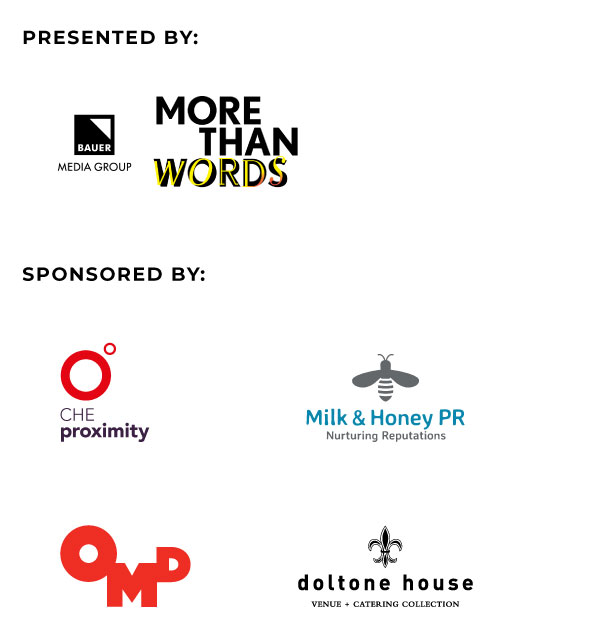Slow out of the starting gates, the advertising industry hasn’t seen “nearly enough” in the way of addressing the marginalisation of women, Bec Brideson says.
During this year’s B&T Women in Media Awards, presented by Bauer Media, we’ll be recognising exceptional people who have achieved success in their professional arenas, celebrating their invaluable contribution to their industry through leadership, innovation and courage.
Well-respected across the creative industries as a champion of change, Bec Brideson recently spoke to B&T about where advertising is going wrong and why it is guilty of “woke-washing”—an expression the Venus Comms chief executive explained is the modern equivalent of “pink washing”.
“It’s like this way of thinking that just because you say something very superficial that it’s actually going to make a change,” Brideson tells B&T.
“In Cannes last year there was a lot of talking about ‘woke-washing’, because the big topics on the agenda were around gender and culture and race equality—but no one is actually making the changes or measuring the data.”
Brideson points to the recent example of the Interpublic Group, which revealed the sorry state of equal opportunity in the United States, as a gold-standard for how to be open and address problems of inequity.
These inequities have, however, been extraordinarily nefarious. A year on from the viral kick-start of the #MeToo movement, in 2018 The Agency Circle released staggering figures that showed as many as 42 per cent of women in Australian advertising had experienced sexual harassment—while 20 per cent had on more than one occasion.
In research released in 2019, The Agency Circle reported “positive results” in relation to sexual harassment, with 85 per cent of women saying they had never encountered such behaviour—15 per cent, however, still had.
Brideson says there have been discussions among leaders in ad-land on addressing the problem, but nothing concrete has occurred to address inequities among the sexes.
“They didn’t say: ‘let’s look at women’s progress in their careers over the last couple of decades’; ‘let’s look at where the female leaders are’; ‘let’s look at the pay inequalities’; ‘let’s look at the treatment of people who have been discriminated against and let’s actually change that’.”
Emphasising such a stagnation on action, Brideson says, was the industry’s behaviour around the Australian Human Rights Commission’s National Inquiry into Sexual Harassment in Australian Workplaces.
“Agencies were asked to waive their non-disclosure agreements and they didn’t,” she tells B&T.
“On the one hand they’re saying, ‘we really care about the treatment of our women’—but they wouldn’t waive that opportunity, so that women who’ve been affected and had non-disclosure agreements put against them could make statements to the national inquiry.”
The way through the spin and the PR-esque “woke-washing”, according to Brideson—who received the 2019 Women in Media Awards award for ‘Champion of Change’—could involve industry-wide initiatives like agency accreditation.
Among these is the Australian federal government’s WGEA ‘Employer of Choice for Gender Equality’ citation, which strategically aligns with the Workplace Gender Equality Act 2012.
That, however, would require self-auditing, which agencies may drag their feet on—especially if they were found to be complicit in covering up behaviours detrimental to other people, Brideson says.
“If agencies won’t do this sort of self-assessment and won’t do it themselves, then clients who are a little bit more answerable—because they may have shareholders that they’re answerable too, or they want to be seen as a brand that is doing right by all of its potential consumers and constituents—could drive that,” she says.
“So, given that clients hold the purse strings, I would think that would be a great place to start … clients should demand more—but that’s a big cultural issue as well, because you may have some brands and some clients who are not particularly ‘woke’ themselves.”
Undoubtedly, this would require the kind of courage and dignity from the industry that Bec Brideson has shown her entire career for industry-wide change to occur—qualities that the B&T Women in Media Awards will continue to celebrate.
Don’t be shy, be proud of your achievements and enter B&T’s Women In Media! Submit your entry here.
You can also buy tickets to the event here, which will be held on Wednesday 28 October 2020, at Doltone House (Jones Bay Wharf).
And, if you’d like more information, head to this website.
Other key information
On-time deadline: Friday 21 August 2020 (5pm AEST)
Late entries deadline: Friday 28 August 2020 (5pm AEST)
Shortlist announced: Wednesday 23 September 2020.
Thank you to all of our incredible sponsors for making the event possible!









